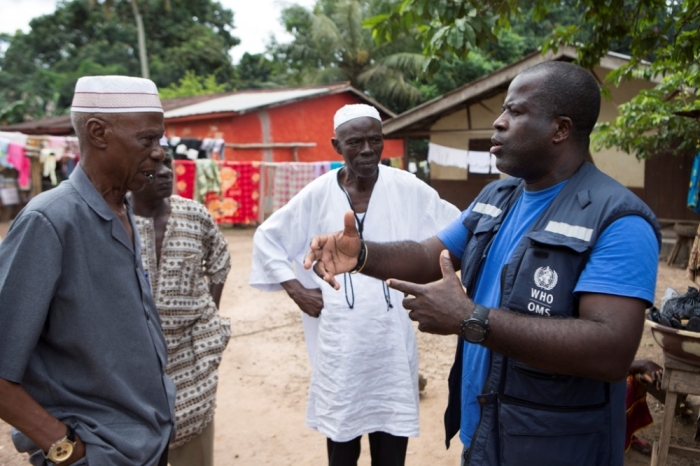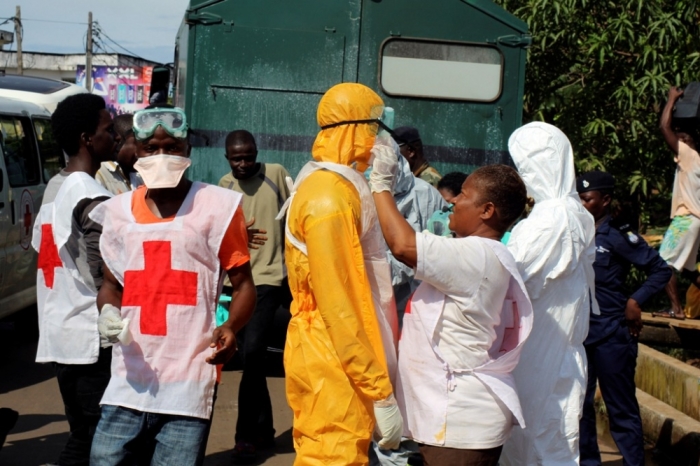Ebola Death Rate Rises Sharply to Over 20 Per Day in Sierra Leone; Curfew Imposed After Riots

More than 20 people per day are dying from the Ebola outbreak in western Sierra Leone, government estimates have said. A curfew was meanwhile imposed on the town of Koidu on Tuesday after a dispute over an Ebola case turned into gunfire and rioting.
The National Ebola Response Center noted that there are now 851 confirmed cases of Ebola in the western area urban and western area rural zones, while over 1,200 people have died in total in the country. Claude Kamanda, a lawmaker who represents the western area, noted that officials are struggling to keep up with the collection of corpses from homes in the area, due to the spike in the death rate.
Sierra Leone has been one of the hardest hit countries by the Ebola outbreak, which has been concentrated in West Africa and spread throughout Liberia and Guinea as well. Over 4,500 are said to have died from the virus, according to World Health Organization statistics, with isolated cases reaching countries like Spain and the United States.

Reuters reported that the eastern town of Koidu has gone under a curfew following an Ebola-related incident. David Koroma, the town's police unit commander, revealed that gunfire and riots were sparked after a former youth leader refused to allow health authorities to take her 90-year-old grandmother for an Ebola screening.
There has been a noted lack of trust between local communities and the central government's efforts to stop the spread of the disease.
The rising number of cases in the west has been attributed to the movement of people from the interior of the country to the western city of Waterloo.
"The growing fear has left the public with no choice but to call on the government for Waterloo to be quarantined as was done to other places including Kailahun, Kenema, Bombali, Port Loko and Moyamba districts," the local Exclusive newspaper said.
There was good news in some neighboring countries earlier this week, however, when Senegal and Nigeria were declared free of the Ebola virus. WHO said the development represents a major victory in the battle against Ebola, and urged the affected countries to study how the outbreak was contained.
"This is a spectacular success story," WHO Representative Rui Gama Vaz said at a news conference in Nigeria on Monday. "It shows that Ebola can be contained, but we must be clear that we have only won a battle, the war will only end when West Africa is also declared free of Ebola."
The agency added in a separate announcement on Tuesday that an Ebola serum for African patients could be ready by January 2015.
"There are partnerships which are starting to be put in place to have capacity in the three countries to safely extract plasma and make preparation that can be used for the treatment of infective patients," said Dr. Marie Paule Kieny, WHO assistant director general for health system and innovation.
"The partnership which is moving the quickest will be in Liberia where we hope that in the coming weeks there will be facilities set up to collect the blood, treat the blood and be able to process it for use."
It is unclear, however, whether the proposed vaccine could meet demand if the Ebola cases keep rising.



























